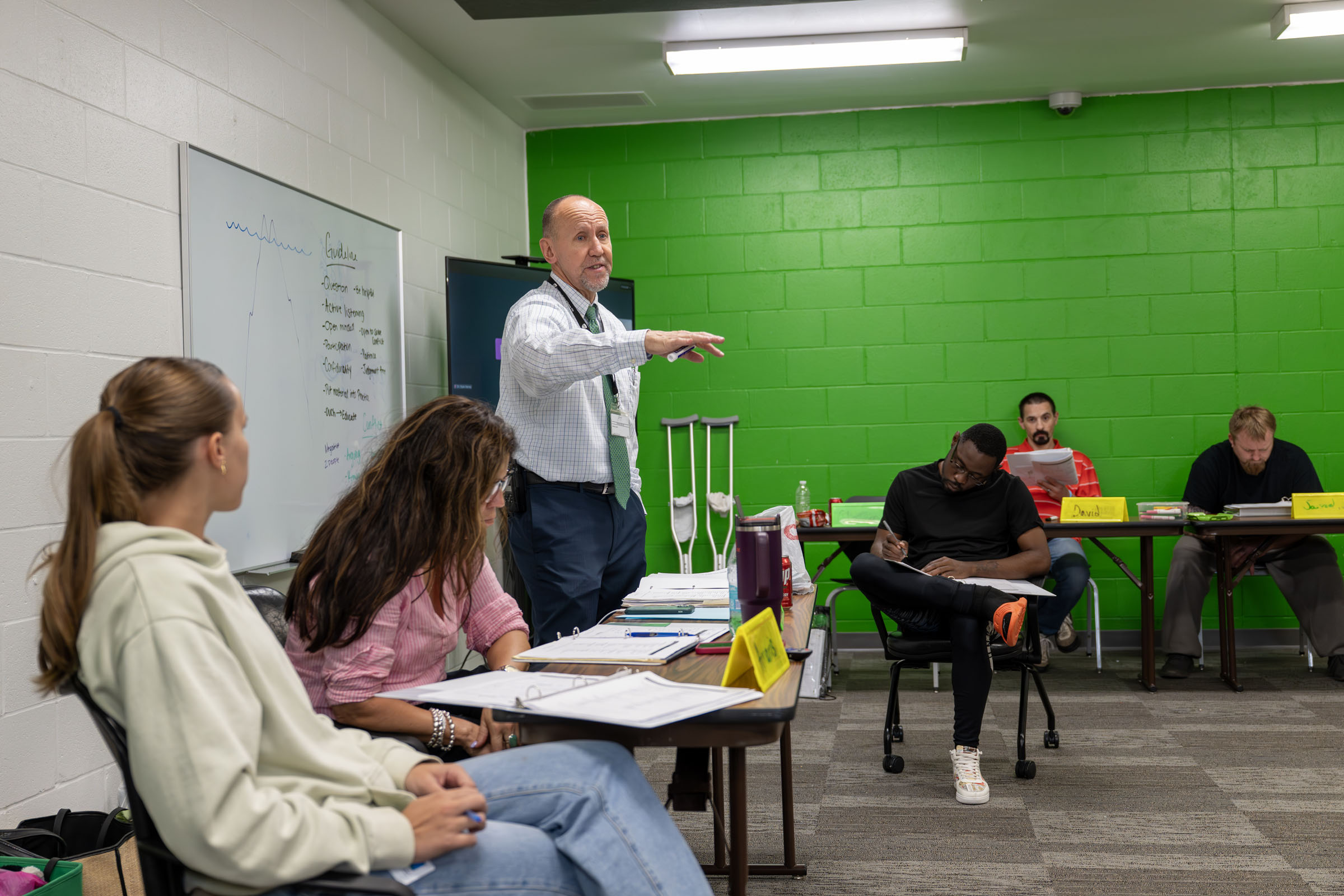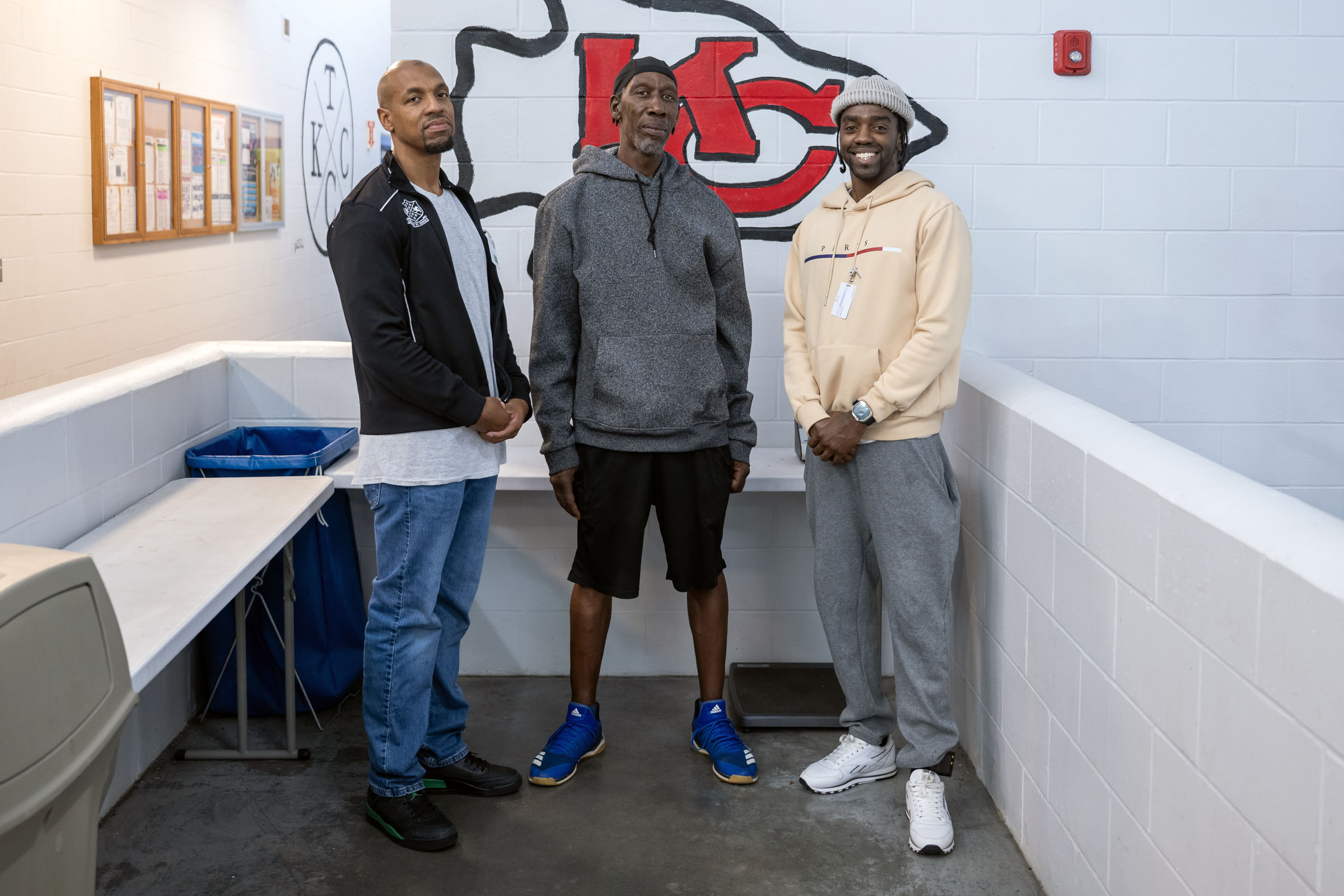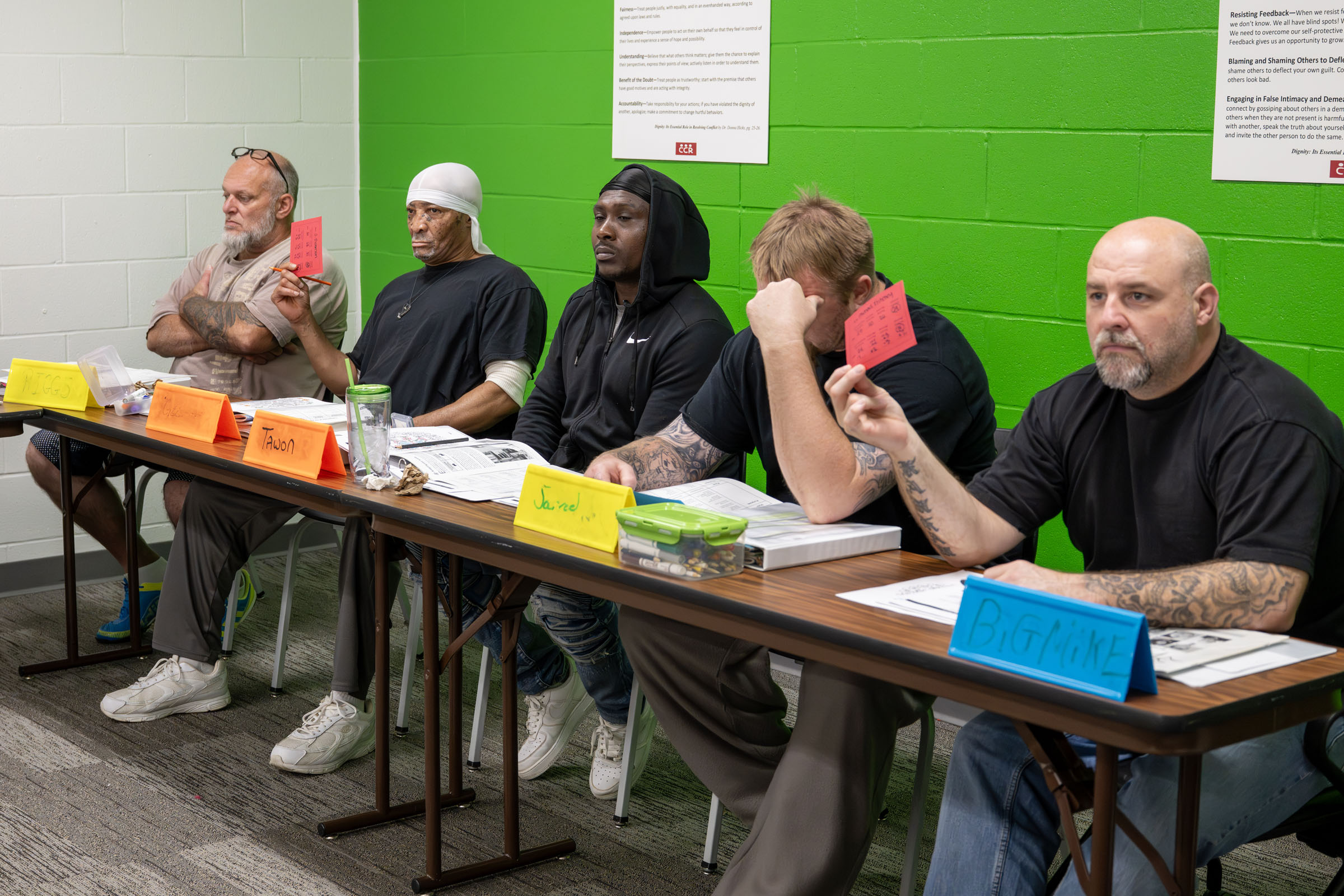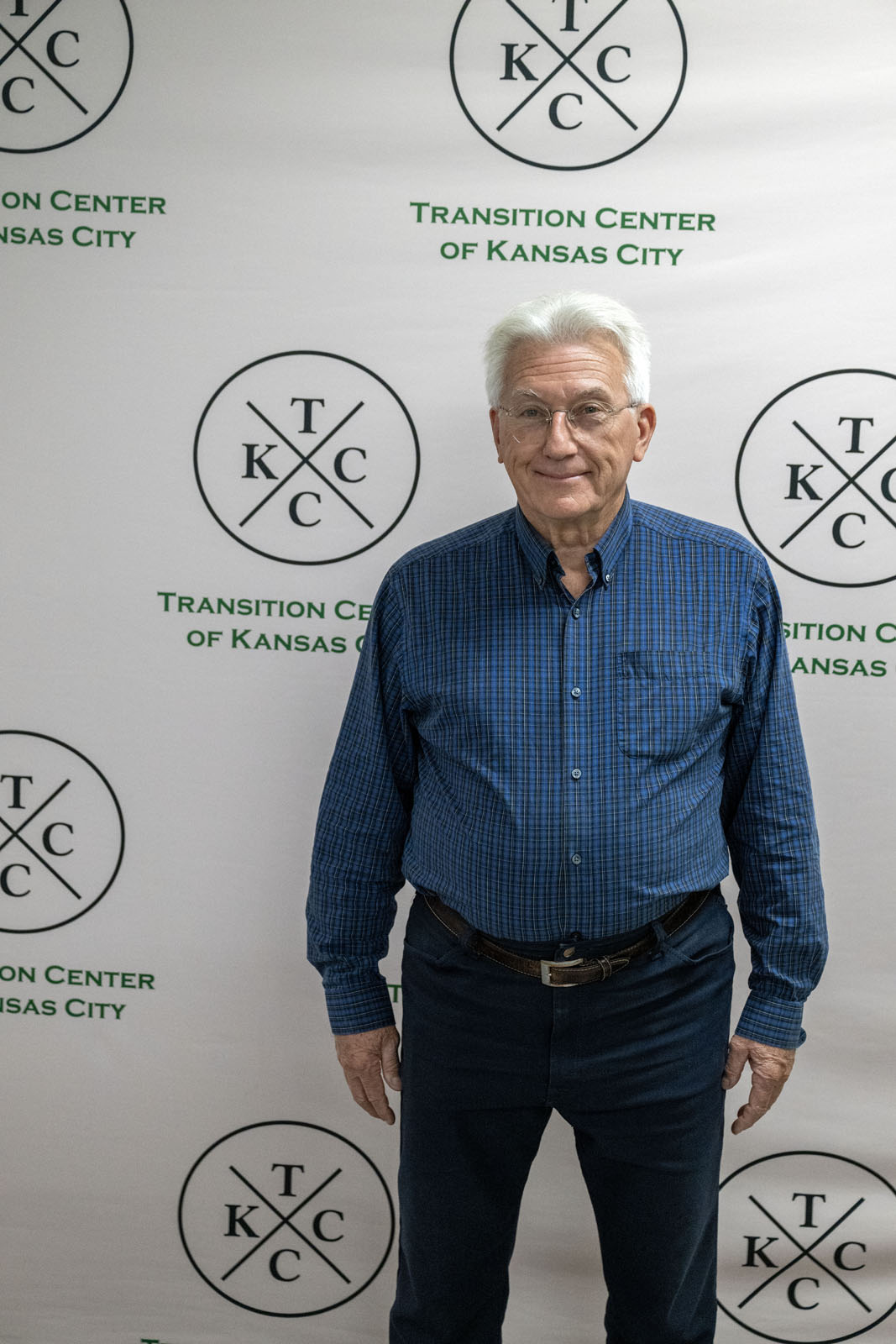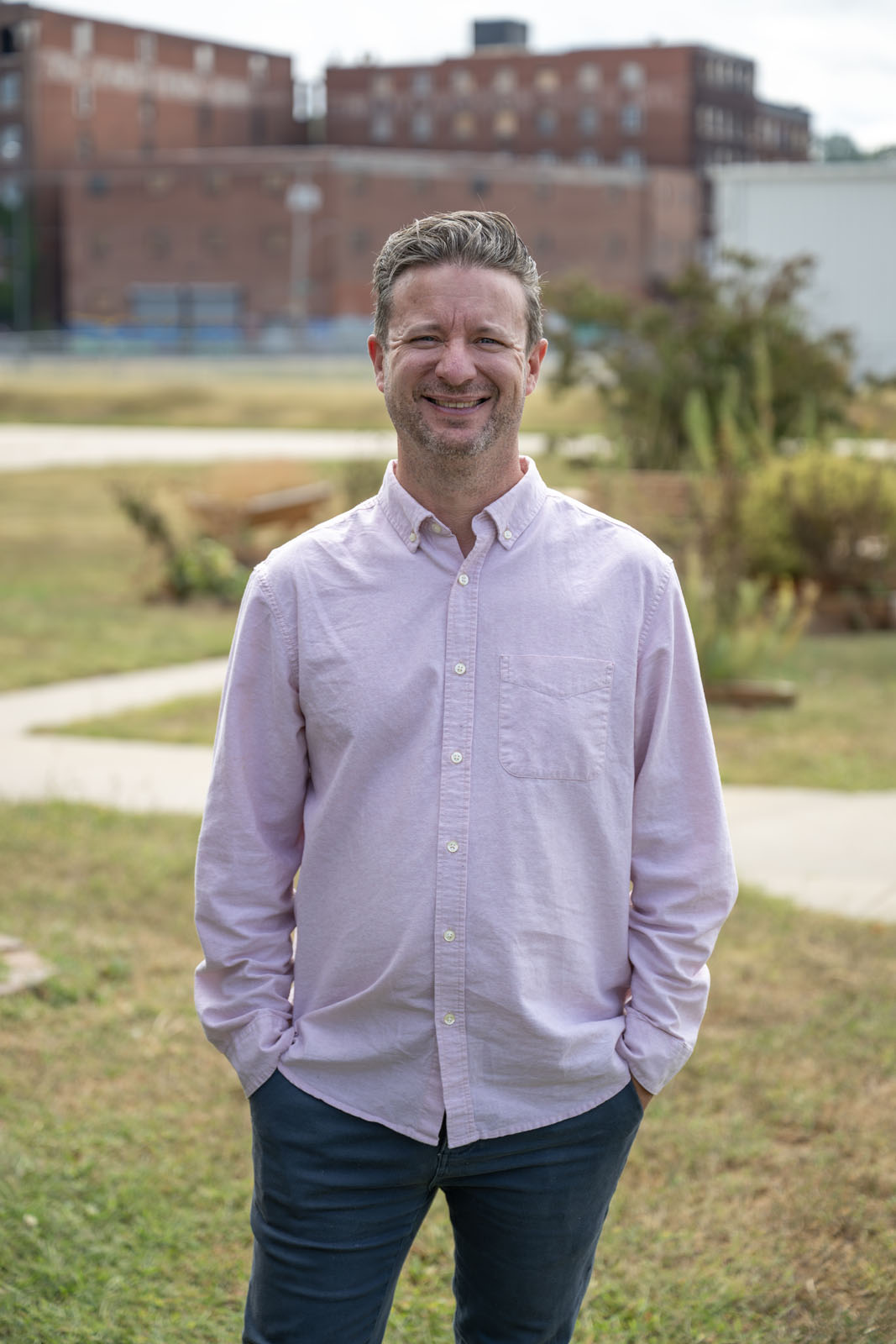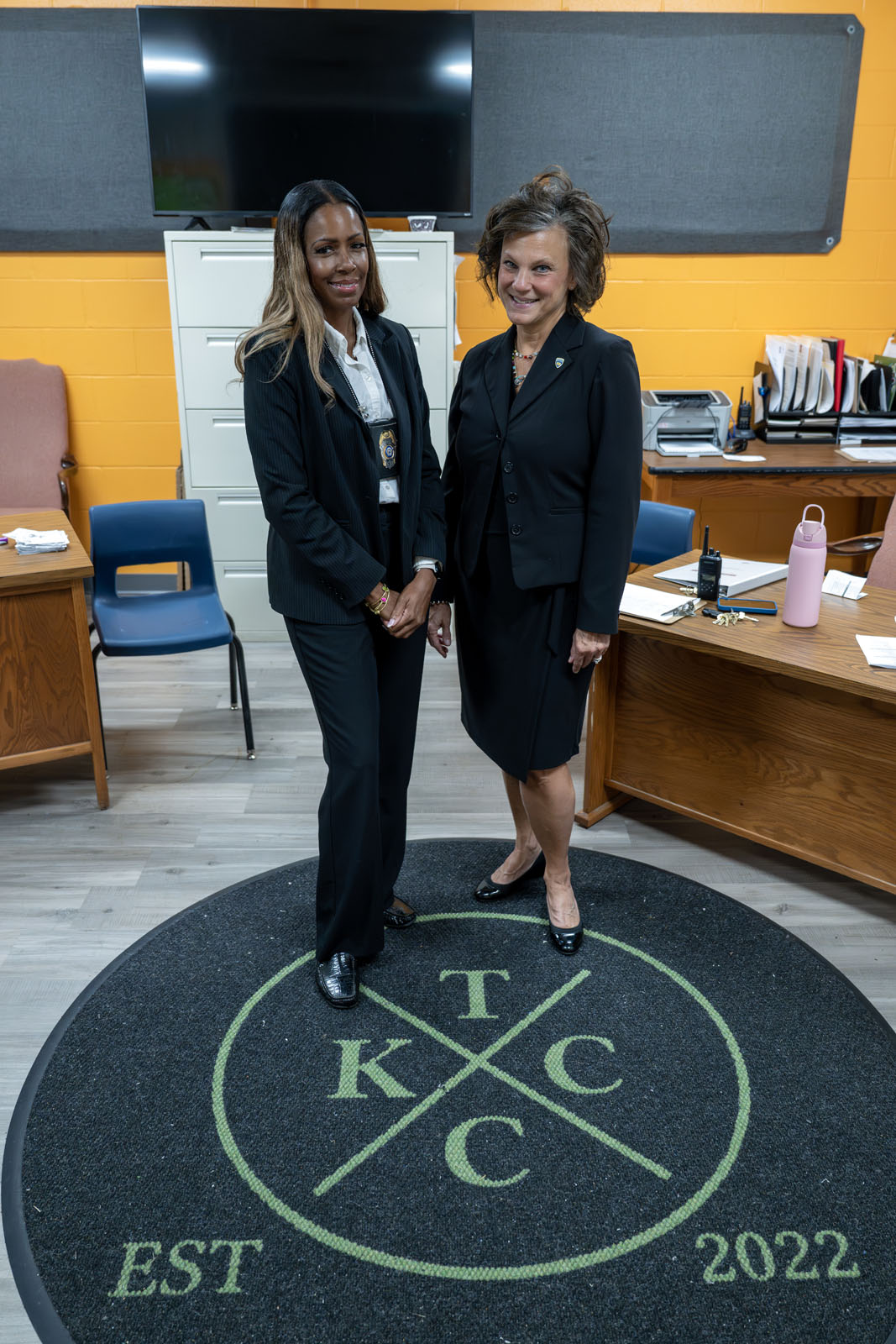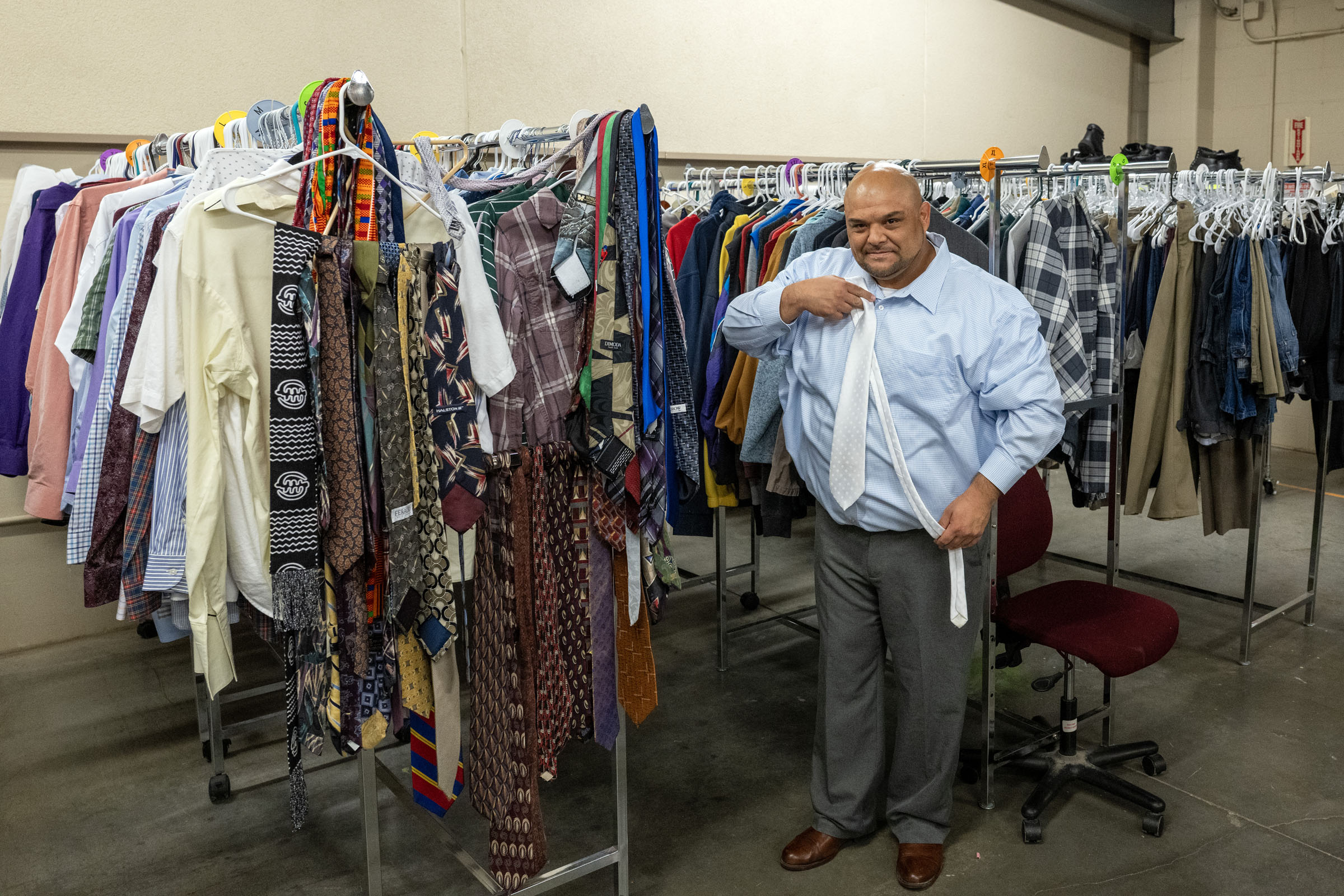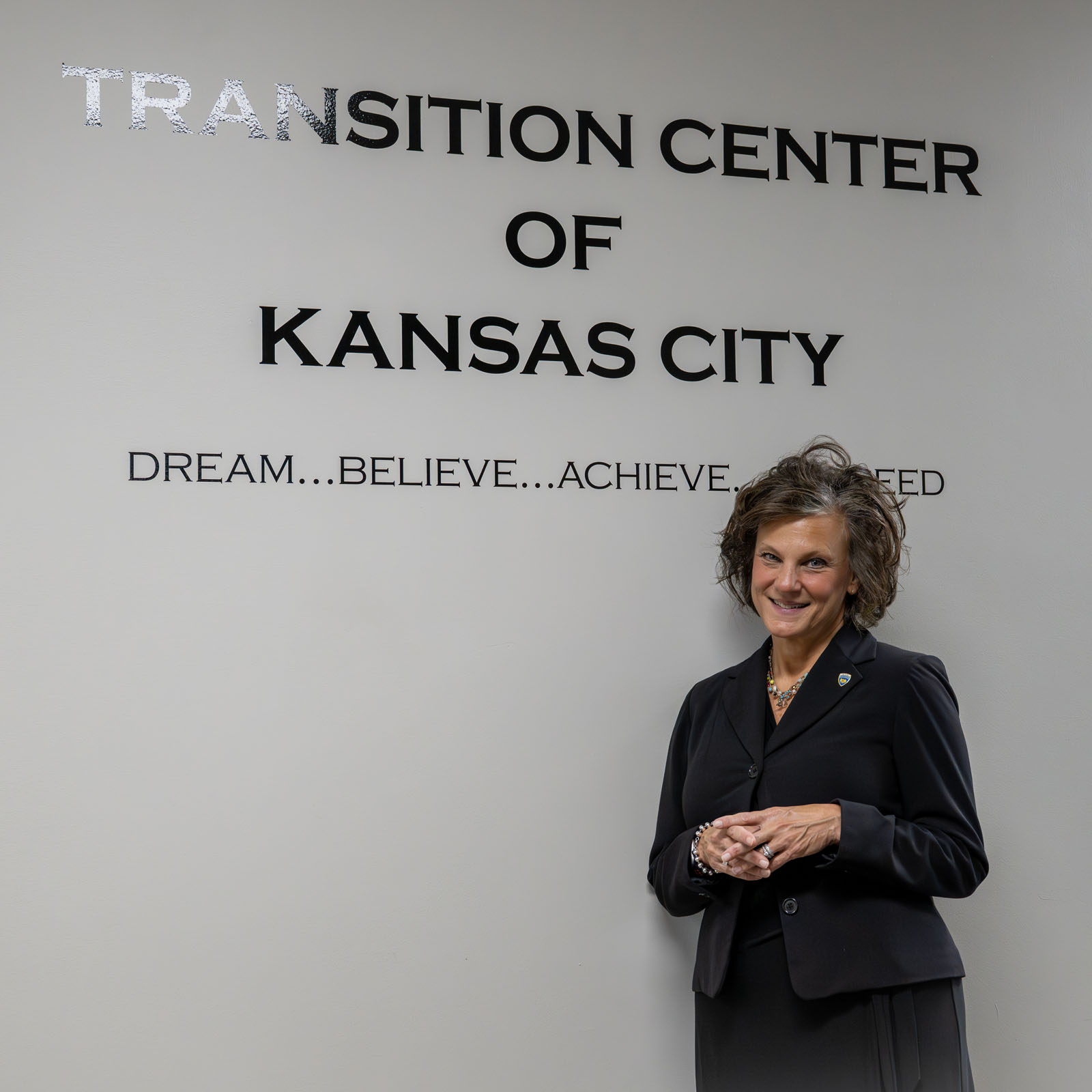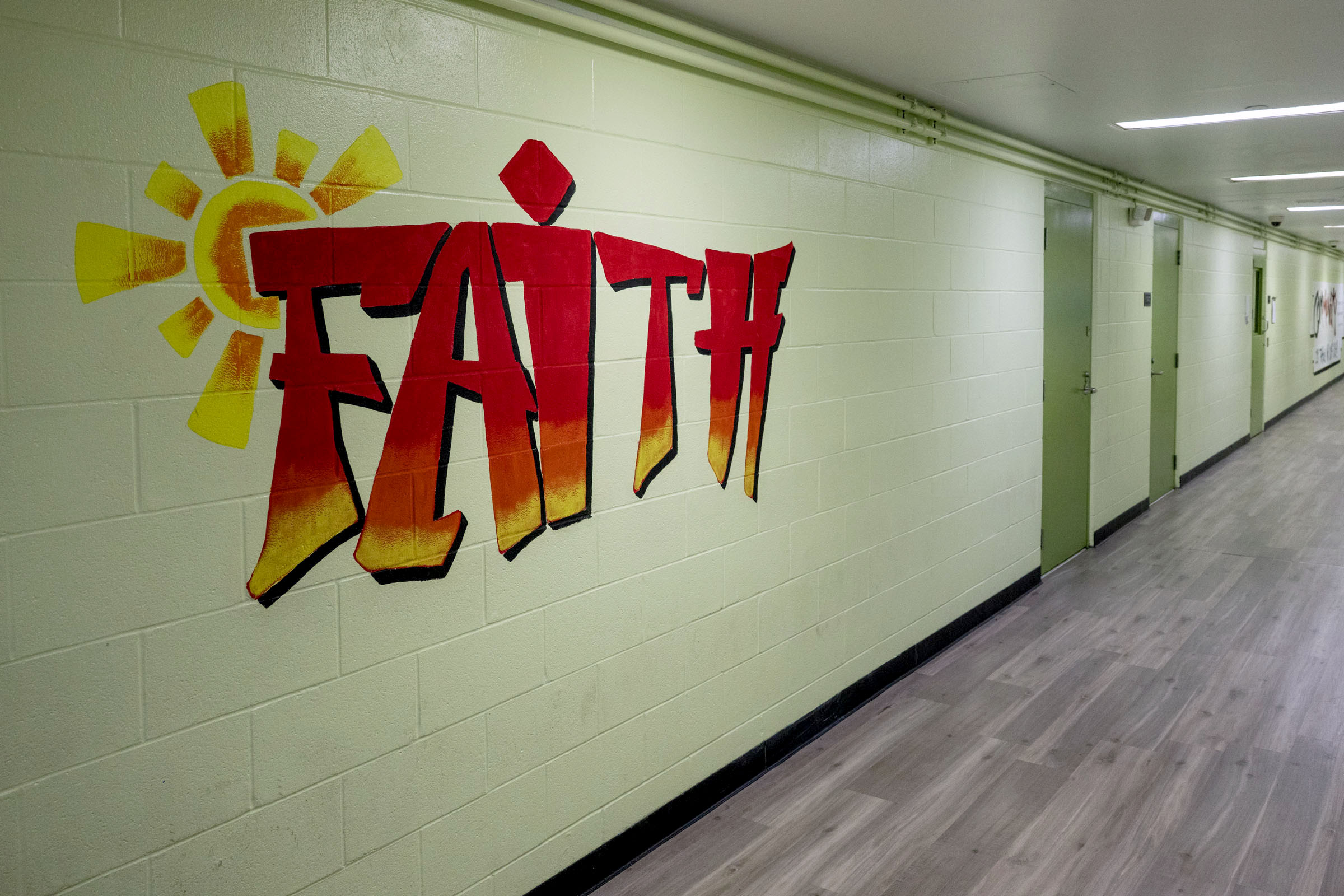The Transition Center of Kansas City equips formerly incarcerated men with tools for successful reentry — directly changing lives for safer communities.

Story by Marcus Wilkins. Photos by Garry Brix.
Coming of age in inner-city St. Louis, Louis Marshall had a streetwise cynicism baked into his perspective. By his own admission, he cared more about the criminal elements of those streets than he did his own family — a choice that netted him a second-degree murder charge and 28 years served in the Missouri Department of Corrections (MODOC).
So, when Marshall — now 60 — arrived at the Transition Center of Kansas City (TCKC) in February, he was naturally a bit skeptical of the program’s slogan “dream, believe, achieve, succeed.” It didn’t take long before he approached Michelle Tippie, TCKC superintendent, and told her so.
“Ms. Tippie said ‘Give me two weeks,’” said Marshall, who now works for All My Sons Moving & Storage in Kansas City. “I had two sets of goals then — those required by the parole board and personal goals of my own.” For example, understanding how important a sense of independence was for Marshall, Tippie made sure he was able to get a pass to leave the facility and shop for his own clothes. “She helped me stay on track with the TCKC program and take those first steps. She really showed me her heart.”

That brand of cooperative compassion has come to define TCKC, a connective hub of resources in the Historic West Bottoms neighborhood, which has undergone its own share of transitions. Opened in 1998 as a level one (minimum security) institution, the facility toggled between prison and release center over the years before reopening as a remodeled residential probation and parole facility in April 2022.
Residents come to the facility to work with reentry professionals on building a new mindset and a foundation for a better life in a tiered, four-phase program. The process includes: orientation, or getting familiar with TCKC and its resources; discovery, during which residents explore their purpose; journey, or learning skills and growing wisdom; and transformation, or reentry into the community.
“They give you the space to figure out what you want to do,” said Vincent Anderson, a former TCKC resident who now works in construction and holds down a security gig while taking classes to earn a commercial driver’s license. “You’re allowed to dance to your own drumbeat, wear your own clothes, work, save money. You have autonomy and time to come up with a strategy. It’s an amazing program.”

Launch Pad
At the helm and heart of TCKC is Tippie, an energetic leader whose personal connection with the residents is exemplified by the number of times she’s stopped along the lime-green hallway during the course of her day. Her contagious enthusiasm isn’t lost on the participants, who are eager to share their successes, or the center’s 50-plus community partner organizations.
“Reentry is about so much more than getting out of prison with a home plan and a job,” Tippie said. “It’s about giving the residents those soft skills to resolve conflict and a safe space to practice. I love seeing the guys come back and reach out to the current guys in the program to help them find success.”
The participants mostly arrive from MODOC institutions, but they are occasionally referred from probation — a move that helps prevent incarceration. After completing orientation, their first step is to work with partners such as Goodwill, Green Core Training (a green jobs workforce‐readiness program) and Journey to a New Life — a nonprofit that provides resources for those who have been incarcerated.
“Teaching people in their situation is very gratifying,” said Bruce Holloway, a Green Core Training educator and Historic West Bottoms board member. “They’re ready. We train them on infrastructure to keep water out of sewer systems, install solar panels, do mechanical work. We even have volunteer opportunities in this neighborhood.”
Goodwill also provides employment services and vocational-training pathways, including classes to familiarize residents with new technologies that might have emerged during their incarceration.
“I admire what TCKC is doing because they’re getting these guys the chance to get some of the life skills — conflict resolution, interpersonal skills — all under one roof,” said Ryan Glidwell, workforce development specialist for Goodwill. “They’re in a different spot by the time they get to us, totally different from someone who’s navigating probation or parole on their own without the TCKC’s guidelines.”
Sky’s the Limit
“Who’s familiar with Maslow's hierarchy of needs?” asks Greg Winship, instructor of the TCKC conflict resolution class, as a smattering of hands go up. “You have to have these basic needs met before you can move up to the next level. But they’re not exactly hierarchical, and at any given point you might have a need that’s more important than food, safety, etc.”
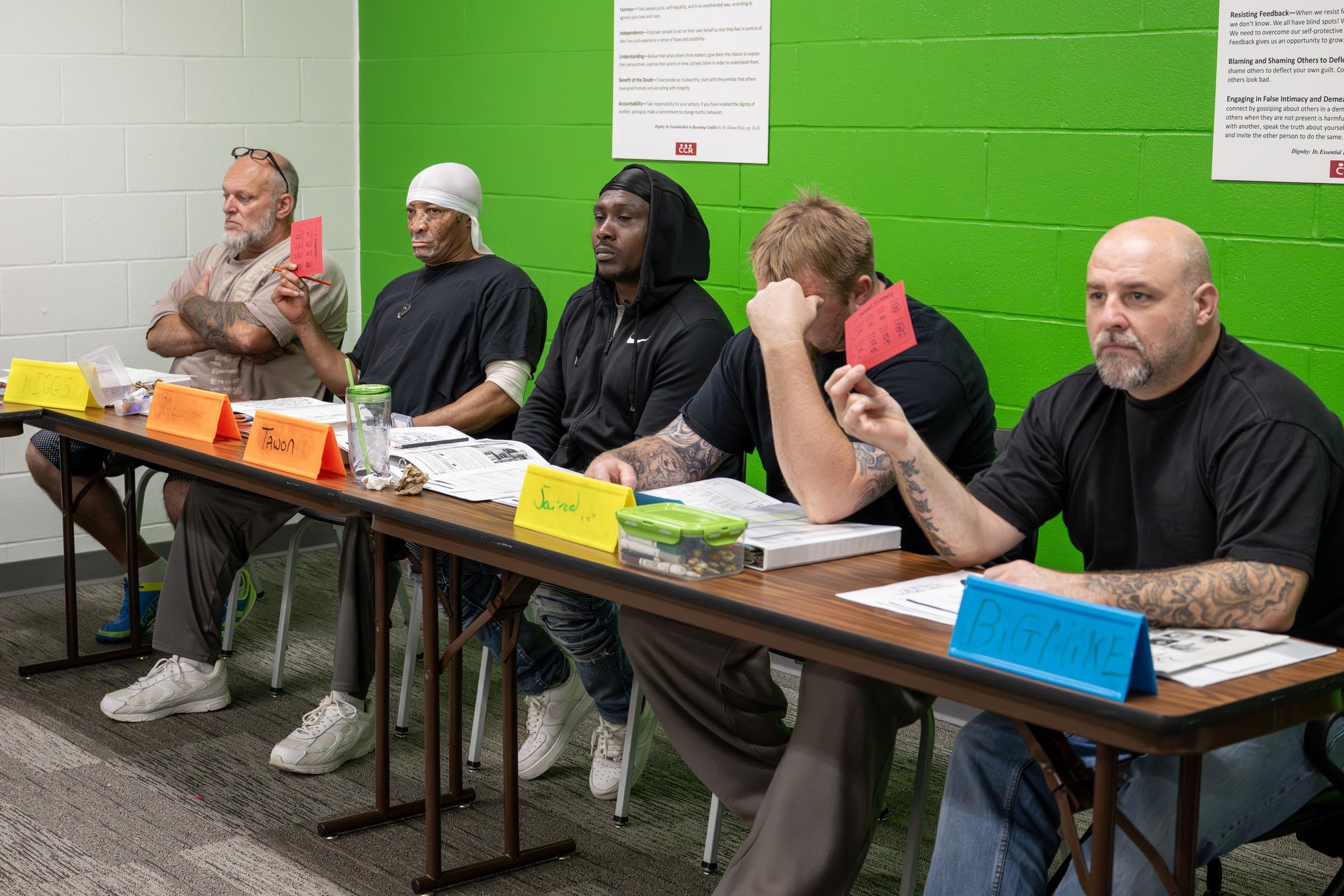
The class, filled with MODOC staff and TCKC residents, enters a lively discussion about communicating needs. It’s a diverse group willing to help one another grapple with truly life-altering concepts.
“We designed this program, and this restorative reentry community, knowing that we need to see perspectives differently and see things from each side,” said Winship, who served 20 years in the Ohio corrections system before starting his life anew. “We have residents and staff sitting side by side, and that’s not being done in many U.S. prisons.”
For some TCKC graduates, such as Ervin Miles, the conflict resolution class is the most valuable takeaway from the program. Raised by his grandparents and without a father, Miles grappled with anger and poor choices throughout his upbringing before entering the state prison system and then landing at TCKC, where he found support and direction. Now he’s an ambassador for the program and visits the facility often.
“If you have victims, you might not be able to talk to them and make amends,” said Miles, who works for All Care Service — a nighttime parking lot, sidewalk and curb-sweeping service. “You pay it forward by doing better in your life and getting yourself together.”
For Tippie and her TCKC crew, “better” is an ever-present goal. She is constantly seeking input from the program’s stakeholders — residents, administrators, community partners — and striving to affect even more change.
“When we introduce ourselves, we say, ‘You guys have the ability to help us get better, do better and be better,’” Tippie said. “Just like we provide that opportunity for the residents, they can give us information to help us improve the program and increase successful outcomes.”

